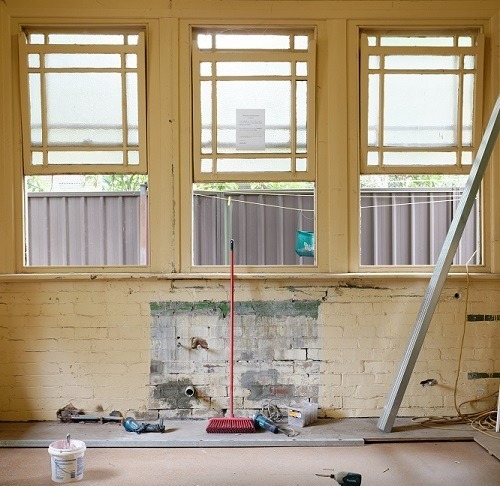
If you’re experienced in renovations and want a bargain, the “as-is” sale might be just what you’re seeking. Cash buyers, home flippers, and investment businesses look for discounted homes and quick purchases.
But what about the ordinary buyer? What’s as-is, in a regular home purchase? And should you go for it?
What’s Going on When a Home Is “for Sale As-Is”?

An as-is home sale usually points to one of the following scenarios:
- A seller might simply not want to haggle over details. Maybe there are issues in the home, but the seller lacks the time, money, or patience to work on issues that could arise before closing.
- Maybe they have had the home for many years and figure they’ll offer an irresistible price so they can sell without having to take on time-consuming renovation projects. They’re ready to move on to their next stage of life — and to leave any necessary house repairs to the next owner.
- Maybe it’s an inherited home, or one being sold by a family trust. The current owners might not even be local. In any case, the sellers simply aren’t in a position to say what elements of the home could use repair and upgrades. They just want to expedite the sale.
- Or perhaps the home is a foreclosed, now banked-owned property. Banks typically sell their homes without upgrading the conditions of these properties.
☛ Should I Buy a Foreclosed Property? Read this first!
Or it could be… none of the above! A local real estate agent can usually get hold of the pertinent information, when an as-is home becomes available.
Legal Term of Art? Or Just Another Name for a Fixer-Upper?
A home can be marketed for sale as-is, but that doesn’t change the buyer’s rights. The seller still has to complete the disclosure form. (Learn more about what happens if the home is being sold long-distance, and therefore the sellers don’t know what to disclose).
And yes, the buyer can still make the sale contingent upon property inspections. And as in most home sales, if the buyer isn’t haggling over every minor detail, as-is sellers negotiate after the inspection.
More on that in a moment.
In many cases, the home may simply be thought of as a fixer-upper. The homeowners don’t intend to fix or improve the property before closing — and do not want to offer price cuts for deficiencies. Usually, pushing that responsibility onto the buyer is already baked into the discount.
But unless the home price reflects a drastic discount, negotiation is not out of the question! Even in an as-is scenario, sellers will chip off a little on the price or go ahead and make repairs if they aren’t too complex. If it’s a matter of one or the other, a price reduction is usually a good call. It allows the seller to leave without making the fixes, as they’ve wanted all along, and it enables the buyer to pick their own contractors.
When the estate market is cooling off, the seller might reasonably expect to bite the bullet and discount the final price of the home. Few things make an impatient seller cringe harder… than having to put the home back on the market after a deal fell through!
The All-Important Inspection: Watch Those Deadlines
After the seller and buyer have signed the purchase and sale contract, the buyer gets a standard period to have the inspection(s) done.
Now, in the normal (not the as-is) sale, a buyer looks at issues on the inspector’s report as fair reasons to lower the price or ask for repairs. But what does a buyer of an as-is home do with an inspection report? Basically, the same thing. As long as the purchase contract includes an inspection contingency, the buyer may point to issues and back out of the deal, and only have to pay for the inspection.
And closing on an as-is home should certainly be contingent on an inspection.
A buyer needs to be alert to deadlines. The inspection period is a time when the buyer can walk away from the deal. Checking the purchase and sale agreement (and any addendum it might have) should confirm this.
After getting the inspection report, the buyer may make the typical requests. The seller will agree to discounts at closing or to the fixes. If at this point the seller will not agree, then either party can call off the deal.
The Burning Question: What Does the Mortgage Company Think?

Is the seller asking for cash-only offers? If so, the seller might think the home’s issues will rule out financing. Red flag alert. If the home has structural defects or some other serious problem such as water damage, a government-sponsored mortgage won’t work. Loans backed by Fannie Mae or Freddie Mac are somewhat more flexible on homes that need work, as long as nothing really major is needed. So, be sure to get a handle on just how serious the fixes will have to be.
If the issues are less serious, a government-backed loan such as a Federal Housing Administration (FHA) mortgage might be fine for the purchase. The buyer can also ask about eligibility for the FHA 203(K) rehab mortgage loan.
Generally, homes bought with regular FHA loans must meet a set of minimum property standards, as assessed by an official appraiser who reports findings on an FHA checklist form. These are the key standards:
- Is the structure of the home, and its roof and plumbing, in adequate condition?
- Is the home sufficiently heated throughout its living spaces?
- Is the home free from hazards (faulty electric systems or water heaters, asbestos, soil contamination or proximity to toxic waste)?
All that looks like the regular building code stuff, right? But for the FHA, there’s more, and it’s about durability. The FHA sets minimum requirements for “the durability of such items as doors, windows, gutters and downspouts, painting and wall coverings, kitchen cabinets and carpeting.” Why? They do so for protection of the value of the loan collateral — “to ensure that the value of an FHA-insured home is not reduced by the deterioration of these components.”
And there are some more issues that have to be right before a lender can approve the FHA loan. In some cases a buyer will cover some repair costs to get the mortgage approval.
Bottom Line: How Can a Buyer Tell Ahead of Time If Negotiations Will Likely Succeed?
Locations can vary greatly. Some are more skewed to the seller’s side than others.
Local real estate agents have their ears to the ground. Ask an agent whether bargaining will have a positive effect where you are — and for the particular home you’ve selected.
Supporting References
U.S. Department of Housing and Urban Development: HUD Minimum Property Standards Supplementing the Model Building Codes (as visited Feb. 2, 2023).
Lisa Johnson Mandell for Realtor.com: Selling a House As Is: What It Means for Buyers (Jul. 31, 2022).
Tim Lucas for MyMortgageInsider.com: What If the Home Does Not Meet FHA Minimum Property Standards (MPS) and Is Selling As-Is? (Aug. 11, 2022).
And as linked.
Photo credits: Tatiana Syrikova and Laurie Shaw, via Pexels; and NDE, via Pixabay.
